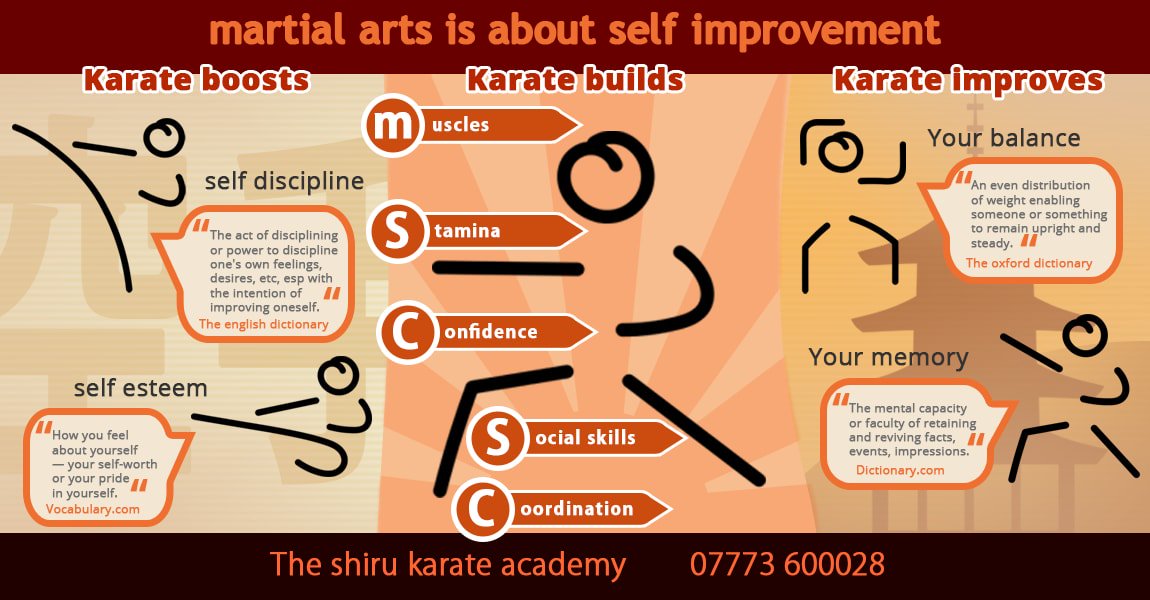The History And Philosophy Of Martial Arts: A Deep Dive
The History And Philosophy Of Martial Arts: A Deep Dive
Blog Article
Short Article Composed By-Ryberg Stokes
Step into the old globe where martial arts were substantiated of necessity in varied areas. Cultures crafted unique battling styles linked with historical contexts. Methods advanced over centuries through dedicated practice and cultural exchanges. Today, modern martial arts blend traditional aspects for maximum effectiveness. Philosophically, martial arts emphasize discipline, self-improvement, and consistency. Recommended Resource site , humbleness, and balance are foundational principles assisting professionals towards growth and durability. Explore the midsts of this rich background and philosophy to uncover the profound influences forming this enduring self-control.
Beginnings of Fighting Style
Martial arts originated in various regions around the world, progressing as useful combat systems to resist hazards. These ancient battling styles were created out of necessity, with each culture crafting methods fit to their special settings and difficulties. From the grappling arts of Jujutsu in Japan to the striking strategies of Kung Fu in China, martial arts were deeply intertwined with the historic, social, and cultural fabric of their respective societies.
In Japan, the samurai class polished martial arts like Kenjutsu, the art of the sword, which later evolved right into the much more popularized form of Kendo. At the same time, in Brazil, Capoeira emerged as a mix of dancing and combat, produced by enslaved Africans as a method to resist fascism. Each fighting style brings with it a rich background and approach, mirroring the values and ideas of individuals who practiced them.
As you delve into the origins of martial arts, you uncover a tapestry of human resourcefulness, strength, and the unrelenting spirit of warriors throughout time.
Development of Methods
Through centuries of method and improvement, battle methods within various martial arts have actually gone through an extensive advancement. From old styles like Martial art and Martial arts to more modern-day disciplines such as Brazilian Jiu-Jitsu and Krav Maga, the evolution of methods has actually been driven by a combination of cultural influences, practical applications, and technological developments.
One significant element of this development is the cross-pollination of techniques in between different martial arts. As an example, techniques from traditional Japanese Jiu-Jitsu were included into the production of Judo by Jigoro Kano in the late 19th century. This blending of designs has actually brought about the advancement of hybrid martial arts like Mixed Martial Arts (MMA), which incorporate elements of striking, grappling, and submission methods.
Furthermore, the development of methods has been shaped by the boosting focus on efficiency and performance in combat. Professionals have constantly looked for to fine-tune their techniques through rigorous training, trial and error, and competition, causing the advancement of extremely specialized and reliable combating designs. On the whole, the evolution of methods in martial arts reflects the vibrant nature of battle and the recurring quest for enhancement and technology.
Philosophical Foundations
Checking out the underlying philosophical principles of martial arts provides insight into their core values and directing ideas. At the heart of several martial arts disciplines is the concept of self-control itself. By educating your mind and body to serve as one cohesive unit, you grow technique that prolongs past the dojo or health club into day-to-day life. This self-control encompasses regard, humility, and self-constraint, shaping not simply your physical capabilities but likewise your personality.
Another basic philosophical structure in martial arts is the concept of continual self-improvement. The journey of mastering a martial art is relentless, with practitioners frequently making every effort to much better themselves, both literally and mentally. This concentrate on growth fosters resilience, perseverance, and a growth way of thinking that can be applied to all aspects of life.
Additionally, martial arts emphasize the importance of consistency and balance. Methods are created to utilize a challenger's power against them, highlighting the concept of producing and rerouting pressure instead of satisfying it head-on. This philosophy encompasses interpersonal partnerships, advertising calm resolutions and good understanding. By embracing these philosophical structures, martial musicians not only boost their battle skills but additionally grow a way of life centered on personal development, respect, and harmony.
Final thought
To conclude, the background and ideology of martial arts supply a rich tapestry of custom, self-control, and self-improvement.
Take for example the story of Bruce Lee, who transformed martial arts by blending various styles and viewpoints to develop his own unique form of Jeet Kune Do.
With https://andrealqtw.blogs100.com/26957567/damaging-barriers-self-defense-courses-for-individuals-with-disabilities and advancement, martial musicians remain to press limits and motivate others to reach their full possibility both in combat and in life.
